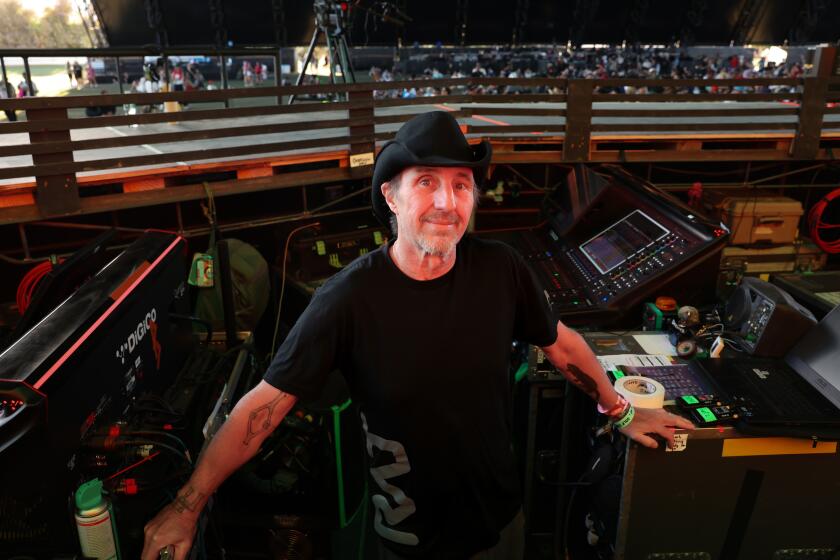Canterbury tales, from a survivor
Robert Wyatt
“Comicopera” (Domino)
* * * 1/2
Even in the context of the eccentrics-heavy ‘60s Canterbury scene (Syd Barrett, Gong), Robert Wyatt has remained a distinctive figure for nearly 40 years, his voice the sound of dried peat, his music drawing more on free jazz and Dada aesthetics than on anything traditionally “pop,” his politics of a Marxist bent. And even in his catalog that includes such eccentric art-rock classics as the early Soft Machine albums and 1974’s “Rock Bottom” -- a landmark of abstract, stream-of-consciousness images and textures completed after a fall from a window left him a paraplegic -- his new “Comicopera” is itself a distinctive turn.
It is indeed a mini-opera in three short acts: “Lost in Noise” portraying a personal sense of love and loss, “The Here and Now” exploring what it means to be English, and “Away With the Fairies” expressing frustrations over what he views as the modern imperialism of the English-speaking world, the latter taking a peculiar form of protest.
As he explains by phone from his home, “I get so exasperated that two-thirds of the way through I stop singing in English.” It’s “petulance,” he admits, but it sees him artistically playing with language and form, communicating via “Italian, Spanish, improvised music, romantic revolutionary stuff of the ‘60s, which paints me so accurately you can guess my birthday.”
It’s a portrait of an English radical at 62, but it’s personal and emotional and neither strident nor stodgy. Crafted with help from such friends as longtime collaborator Brian Eno and more recent acolyte Paul Weller, the music ranges from pastoral Impressionism to instrumental experiments to the salsa of the closing “Hasta Siempre Comandante” (by Cuban writer Carlos Puebla in honor of Che Guevara). At times, it sounds like Miles Davis circa “In a Silent Way,” as if produced by Eno.
Don’t be fooled by the seemingly structured presentation, though.
“Concept is too grand a word for how I work,” he says. “I accumulate stuff, bits and pieces of ideas, sketches of works and sounds.”
Agenda, he adds, is also too strong a word. “Given a peaceful and civil world, I’d be sitting happily and playing my word games,” he says. “But we are constantly swept up in hot winds of vicious conflict. Basically I’m just a witness. I have no illusion that I can make any difference. I’m not an activist.”
But he has been quite active of late (singing, along with Elvis Costello and Sting, on the recording of Steve Nieve’s “real” opera “Welcome to the Voice,” as well as on an album by Brazilian vocalist Monica Vasconcelos, returning the favor for her guest appearance on “Comicopera”).
“I’ve never been in my 60s before, so I better get on with stuff and not put things off till tomorrow,” he says. “I’m just trying to earn a living here. If enough people take an interest to allow me to do that, then I’m OK. I said once I thought about retiring, to which [jazz composer-musician] Carla Bley said, ‘You can’t. You’re a musician, not a rock star.’ Which I think is a compliment.”
--
On the Record is an occasional feature combining artists’ comments with critical assessments of noteworthy new works.
More to Read
The biggest entertainment stories
Get our big stories about Hollywood, film, television, music, arts, culture and more right in your inbox as soon as they publish.
You may occasionally receive promotional content from the Los Angeles Times.






